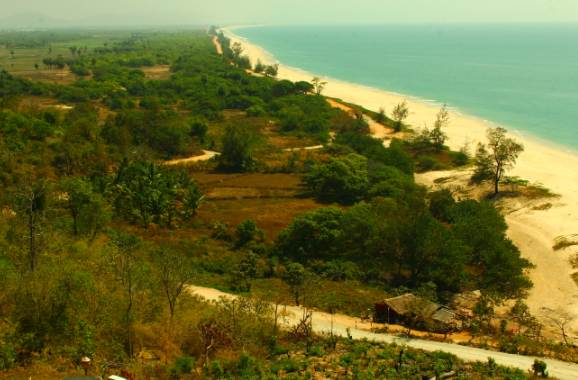A report by Japanese foreign development agency, the Japan International Cooperation Association (JICA), into regional development in southeast Burma, has come under heavy criticism from the Karen Environmental & Social Action Network (KESAN), a prominent NGO based in Chiang Mai, northern Thailand.
Dated October 2013, the 593-page “Preparatory Survey for the Integrated Regional Development for Ethnic Minorities in the South-East Myanmar” report by JICA makes recommendations as to the creation of further Special Economic Zones (SEZs) across southeast Burma, designed to link the Dawei deep-sea port project, already housed within a planned SEZ on the coast of Tenasserim division, to Rangoon via “clusters” of deregulated infrastructure hubs.
Central to this project, JICA says, is the integration of displaced minority groups into the SEZs, which have been proposed across Burma in order to stimulate growth via the localised deregulation of industry and tax incentives for businesses.
KESAN alleged in a statement on Wednesday that the local communities have in fact been frozen out of the economic fact-finding process and now risk exploitation as foreign businesses are encouraged to take advantage of the low wages on offer at the SEZs.
A contrast in earning potential between Burma and Thailand is noted by the JICA as a crucial element of the development of Mon and Karen states.
JICA proposes that the Burmese government take advantage of a recent minimum wage increase in Thailand, in order to attract labour-intensive jobs across the border. JICA estimates that 200,000 jobs could be created in the Burmese towns of Myawaddy and Hpa-an, to be filled by resettling IDPs and refugees returning home across the border from refugee camps and the area surrounding the Thai town of Mae Sot.
In its 19 February statement, KESAN noted a lack of focus on the potential vulnerabilities of under-represented groups, particularly women. Other rights issues were also raised, including the “increasing epidemic of farm land confiscation to make way for the new roads and special economic zones”.
KESAN said it believes that these issues stem from a lack of understanding as to the inadequate level of ethnic or local representation in current government structures – structures KESAN suggests are mired in “administrative, financial and political inadequacy”.
[related]
The JICA proposal focuses heavily on engagement with the Burmese central government. A “Grand Plan” established under the former military junta provides the crux of Burma’s centralised long-term development strategy.
The JICA report states that “the existing ‘Grand Plan’ for long-term development of Myanmar [Burma] provides a basic reference in planning for the regional development of Southeast Myanmar.”
The ‘Grand Plan’ instructs regional governments, such as those of Karen, officially known as Kayin, and Mon States, to develop their own five-year plans. The Karen NGO suggests that these plans fail to “build on existing local capacity and agency, particularly in terms of self-reliance and sustainable management of resources.”
The JICA report itself notes that, “Since [the Grand Plan] was prepared during the previous administration, some modifications may be necessary to reflect the liberalization and democratization policies of the new administration.”
And that: “The Union Government of Myanmar is promoting localization of development administration, but how to realise it is not necessarily clear yet.”
The notion of further centrally designed SEZs amidst rural ethnic populations may indeed be worrying for rights activists. The Dawei deep-sea port project, which falls in the territory of a proposed SEZ, has been at the root of land-grab claims and health complaints on the part of local residents.



